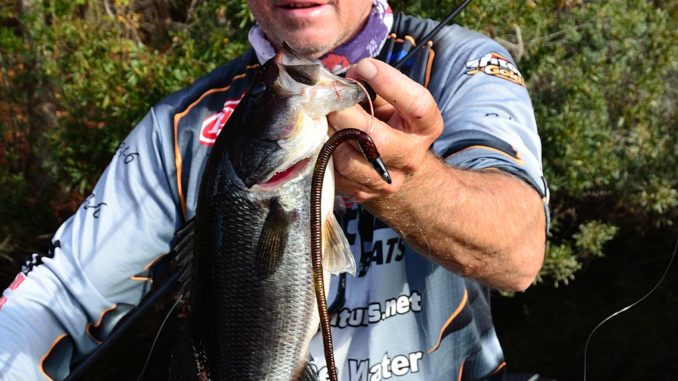
Topwater fishing can be one of the most fun and easiest ways to catch bass over the summer, but the surface bite will surely short-stop an angler’s time on the water. To keep fish coming into the boat, you need to trade in topwater techniques for a slower strategy: shooting soft plastics into deeper water.
Todd Vick of Fishin’ Freshwater Charters switches to soft plastics as soon the topwater bite falters on his favorite rivers.
“The key to August fishing in South Carolina is finding deeper water that these fish are going to be comfortable in,” Vicks said. “When it is hot, we want shade, and fish are same way. We shoot the shadows.”
Vick pulls out of the shallows and looks for water in the shade of shoreline trees, with depths of at least 10 feet.
“Lizards, snakes and all kinds of stuff fall into the river from big, overhanging tree branches,” he said. “I switch to a Texas-rigged worm and slow down my presentation. Just like my grandfather said, ‘If you think you are going slow, you are still going too fast’. And he is right, the slower the presentation, the better success during this time of the day.”
Vick uses 10-inch or even larger, mega-sized worms like the D.O.A. Sna-Koil. The larger, snake-type plastics can trigger a bite from fish nestled in deep water, especially when snakes are routinely part of their diet in these blackwater systems.
Beyond large plastics, Vick will break out a drop-shot rig and pitch into the bottom of the holes. His drop-shot rig consists of a terminal sinker with a No. 1 wacky hook 18 inches up the line. His soft plastic of choice is a wacky rigged Fluke or a Senko-style bait, but they key to his drop-shot technique is in the movement.
“Don’t raise the line up much. Just make contact with the bottom and barely move the rod just enough to make it dance. If the fish are there, they can’t stand it,” he said.

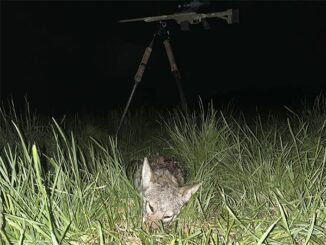
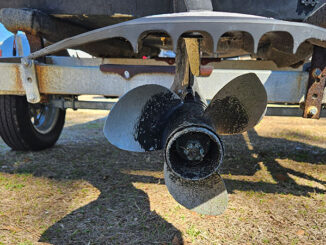
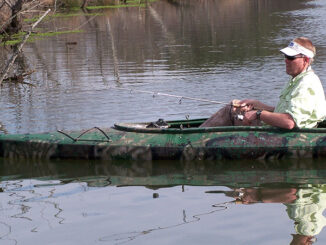
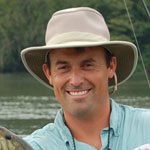
Be the first to comment